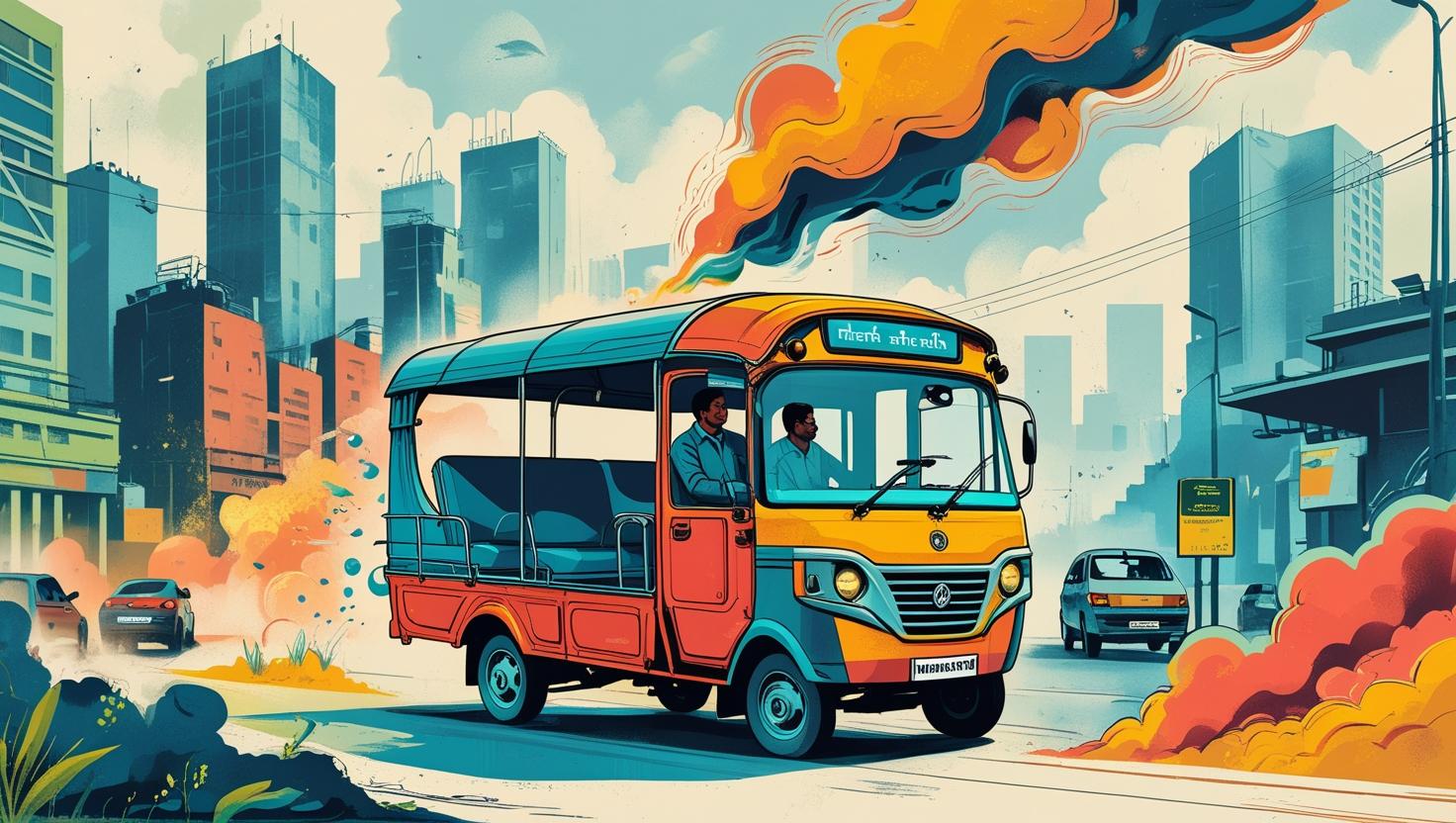Noise, Pollution & Responsibility of Public Transport Drivers
Introduction
Public transport vehicles are vital to India’s mobility—but they also contribute significantly to Urban Noise & Pollution. While infrastructure and technology are part of the solution, the behaviors of public transport drivers also play a critical role in reducing environmental impact. At Hubert Ebner India, we believe training drivers to be eco-aware and responsible is essential for sustainable transport.
🔊 Noise Pollution: A Silent Menace
Excessive honking, harsh acceleration, and loud engines all contribute to:
- Increased stress and fatigue in passengers and pedestrians
- Disrupted sleep in residential zones
- Negative impact on students, hospital patients, and elderly individuals
- Driver irritability and road rage
Public vehicle drivers can help curb noise pollution by:
- Avoiding unnecessary honking
- Maintaining proper vehicle servicing (especially silencers and brakes)
- Driving smoothly and avoiding engine revving
🌫️ Air Pollution: More Than Just Traffic
Diesel buses, overloaded autos, and poorly maintained vans emit harmful gases like PM2.5, CO, and NOx, affecting air quality.
Drivers can help reduce emissions by:
- Avoiding excessive idling
- Shifting gears smoothly
- Keeping vehicle speed consistent
- Performing daily emission checks
- Reporting malfunctioning parts (e.g., exhaust systems)
🎯 Training Drivers for Environmental Responsibility
At Hubert Ebner India, we incorporate eco-responsibility modules in public driver training programs:
✅ 1. Eco-Driving Techniques
- Smooth acceleration and braking
- Optimized gear shifting
- Route planning to reduce fuel use
✅ 2. Noise Awareness
- Understanding the impact of honking
- Using the horn only when necessary
- Reducing aggressive or abrupt driving patterns
✅ 3. Vehicle Maintenance Awareness
- Encouraging routine checks for silencers, filters, and tyres
- Importance of PUC (Pollution Under Control) compliance
✅ 4. Behavioral Training
- Promoting a sense of shared responsibility for clean air and quieter cities
- Linking driver habits to public health outcomes
💡 Impact of Responsible Driving
When trained properly, public transport drivers can:
- Reduce vehicle emissions by up to 20–30%
- Significantly lower noise levels in sensitive areas
- Improve public perception and trust in transport services
- Set examples for other road users through leadership and discipline
✅ Conclusion
India’s pollution crisis isn’t only a policy issue—it’s a people issue. With the right training, public transport drivers can become frontline warriors against noise & pollution. It starts with awareness, continues with action, and ends with a cleaner, quieter city for everyone.
📞 Call to Action
Looking to empower your drivers with eco-conscious training and civic responsibility?
Contact Hubert Ebner India to implement our public vehicle training programs focused on reducing environmental impact through better driving behavior.




